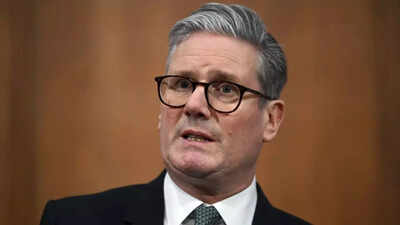When Prime Minister Keir Starmer stood before cameras on 26 September 2025 to unveil Britain’s first national digital ID, he called it a “modern solution for a modern country.”The BritCard, a voluntary digital identity for everyone over 16, was meant to simplify daily bureaucracy — applying for jobs, renting homes, opening bank accounts.Within hours, it had done something else entirely: trigger a nationwide debate about surveillance, data rights and state overreach in a country that famously scrapped its last ID card plan fifteen years ago.
The Big Picture
The BritCard Digital ID is designed to serve as a single digital credential for identity verification.It builds on the GOV.UK One Login programme and will be free for all citizens and residents with the right to live and work in the UK.Starmer argued the system would reduce paperwork and save up to £85 in private verification fees. But the plan’s link to employment verification — BritCard will be required for all new jobs and housing rentals — has blurred the line between voluntary and mandatory use.Polls now show public support slipping to -14%, with over 1.4 million online engagements dominated by scepticism.
Driving the News
The digital ID’s rollout follows Labour’s broader attempt to modernise governance and tighten control over illegal migration. Officials claim BritCard will cut fraud, speed up background checks and create a secure, encrypted system without a centralised database.However, the scheme’s announcement was met with social media backlash.Community notes on X (formerly Twitter) challenged Starmer’s claims on verification costs, while privacy campaigners accused the government of “rebranding the old ID card under a digital label.”
Why It Matters
The BritCard revives one of Britain’s most divisive policy ideas — national identity verification — in a new digital form.The UK’s last attempt, under Tony Blair in the 2000s, was scrapped in 2010 after concerns about surveillance and cost overruns.Critics say the BritCard risks repeating that history.They warn of function creep, where a voluntary system quietly becomes required for access to essential services, echoing fears around China’s social credit model or India’s Aadhaar before reforms introduced stronger privacy rules.
The Concerns
Privacy and surveillance:Civil liberty groups like Big Brother Watch warn BritCard could create a “checkpoint society,” allowing the state to track everyday activities.Data security:Cybersecurity experts say connecting multiple databases under one digital identity increases the risk of breaches and identity theft.Digital exclusion:People without smartphones or reliable internet could face new barriers in employment and housing.Political mistrust:Opposition MPs, including former minister David Davis, argue that “voluntary today” could become “compulsory tomorrow,” especially once integrated with other services.
What the Government Says
Downing Street insists BritCard is secure, optional, and citizen-centred.Officials emphasise there will be no single national database and that the system will rely on encrypted credentials stored by users.The government claims the project will “restore trust in identity,” streamline background checks, and support law enforcement in tackling illegal working and benefit fraud.A Home Office spokesperson said the plan will “make life simpler for the law-abiding majority and harder for those exploiting the system.”
The Backlash
Public sentiment remains sharply divided.On X, hashtags like #NoToBritCard and #StopDigitalID trended within hours of the launch.Civil rights groups have filed petitions urging Parliament to halt the rollout, warning it would “normalise constant verification.”Polling by Ipsos shows 57% of Britons back ID cards in theory, but only 38% support a purely digital version.Critics argue that the scheme’s success depends less on technology and more on trust, something successive British governments have struggled to maintain after multiple data scandals.
The Road Ahead
The government plans a phased rollout starting with veterans and select public sector workers in 2026, before expanding nationwide.BritCard credentials could eventually integrate with driving licences, NHS records and tax accounts under the planned GOV.UK Wallet.The Home Affairs Committee has opened an inquiry into the proposal’s privacy, cybersecurity and equality implications.Its findings will likely shape how far and how fast the system proceeds.
The Bottom Line
For Starmer, BritCard represents efficiency, innovation and control.For opponents, it symbolises state overreach dressed up as digital progress.The next year will test whether Britain’s digital identity revolution can convince citizens that convenience does not have to come at the cost of freedom. Go to Source



